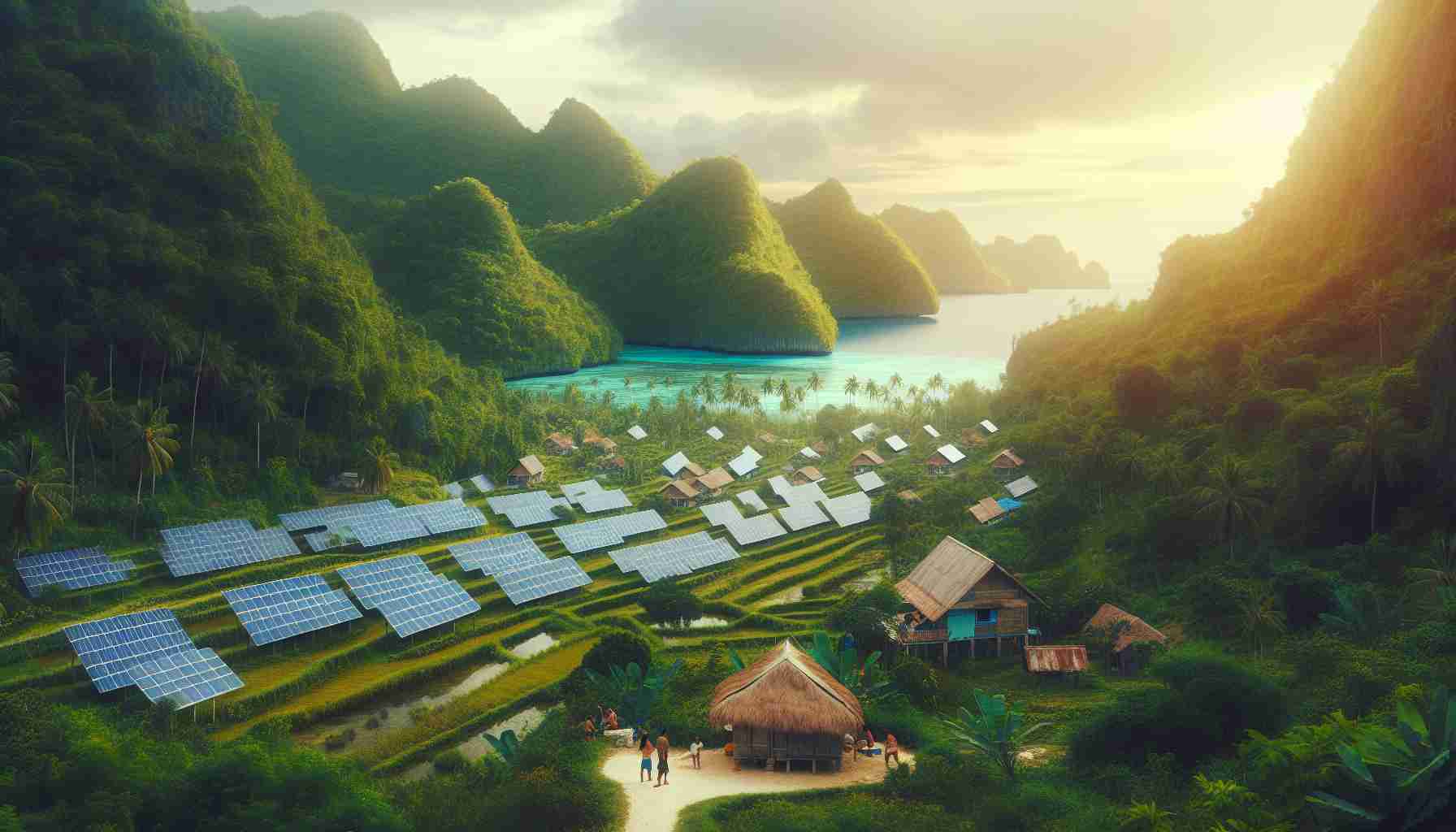Transforming Tourism with Renewable Energy
The tourism sector in the Philippines shines brightly, contributing an impressive 8.6% to the nation’s GDP in 2023. A recent survey highlighted that 76% of travelers are now seeking eco-conscious options, prompting local destinations to prioritize sustainability.
In response, the Philippine Department of Tourism has introduced the ANAHAW Philippine Sustainable Tourism Certification, a program that recognizes accommodations that embrace eco-friendly practices, including energy efficiency and carbon footprint reduction.
Bohol, renowned for its stunning natural attractions, is breaking new ground with its Dagohoy Solar Power Project (DSPP). This groundbreaking initiative, leveraging solar energy, has played a vital role in powering the island’s growth amid a remarkable 313% increase in tourist arrivals this past year. Situated at the heart of Bohol’s energy strategy, DSPP utilizes 40,000 solar modules to generate 41,000 MWh of clean electricity annually, supporting nearly 18,000 households and famous landmarks like the Chocolate Hills and the Tarsier Sanctuary.
Bohol’s commitment to solar energy not only reduces carbon emissions but has also created over 600 local jobs, boosting the economy significantly. This project exemplifies how renewable energy is reshaping tourism in the Philippines, setting a precedent for other regions aiming to harmonize growth with environmental care. By harnessing the sun’s energy, Bohol is paving the way toward a sustainable future without compromising its natural beauty.
Broader Implications of Sustainable Tourism
The intertwining of renewable energy and tourism is not just a local endeavor but a significant global movement. As destinations like Bohol embrace solar power, they help catalyze a wide-ranging shift in societal attitudes towards sustainability. The increased traveler demand for eco-friendly options reflects a changing cultural landscape where consumers prioritize environmental responsibility over mere convenience. These choices amplify pressure on both governments and the private sector to innovate and adapt, aligning with the broader goals of the Paris Agreement.
From an economic perspective, regions investing in sustainable infrastructure could see a frontier in eco-tourism techniques, potentially boosting the global revenue from sustainable travel. According to a recent analysis by the World Tourism Organization, sustainable tourism could grow to represent over 20% of the global tourism industry by 2030. This shift not only enhances national economies but also fosters community engagement, creating resilient local enterprises that prioritize environmental stewardship.
Furthermore, the environmental effects are profound. Transitioning to renewable energy not only curtails carbon emissions but also minimizes the depletion of natural resources—a crucial factor for islands and coastal areas vulnerable to climate change. As destinations become more sustainable, they may set a precedent for global tourism trends, prompting others to follow suit, thereby imbuing a sense of responsibility among travelers and hosts alike.
The long-term significance is clear: regions adopting renewable energy in tourism can serve as blueprints for sustainable development efforts worldwide, ultimately leading to a harmonious balance between prosperity and preservation that future generations will commend.
Renewable Energy Revolutionizing Tourism in the Philippines
Transforming Tourism with Sustainable Practices
The tourism sector in the Philippines has witnessed a remarkable transformation, significantly influenced by the increasing demand for eco-friendly travel options. In 2023, tourism contributed an impressive 8.6% to the nation’s GDP, reflecting its pivotal role in the economy. In light of this, a recent survey revealed that 76% of travelers are now seeking eco-conscious options, prompting destinations across the country to prioritize sustainability initiatives.
Sustainable Certification Initiative
To promote environmentally friendly practices within the industry, the Philippine Department of Tourism launched the ANAHAW Philippine Sustainable Tourism Certification. This innovative program recognizes accommodations and services that adhere to eco-friendly practices, such as enhancing energy efficiency and reducing carbon footprints. This certification aims to cater to the growing market segment of environmentally-aware travelers while positioning the Philippines as a sustainable travel destination.
Spotlight on Bohol’s Renewable Energy Projects
Bohol, one of the Philippines’ most picturesque provinces, is taking significant steps towards integrating renewable energy into its tourism offerings. The Dagohoy Solar Power Project (DSPP) is at the forefront of this movement, harnessing the power of the sun to support the island’s burgeoning tourism sector, amidst an astonishing 313% increase in tourist arrivals in the past year.
Key Features of the Dagohoy Solar Power Project:
– Capacity: The DSPP boasts 40,000 solar modules that generate an impressive 41,000 MWh of clean electricity annually.
– Community Impact: This renewable energy initiative powers nearly 18,000 households and supports key attractions such as the iconic Chocolate Hills and the Tarsier Sanctuary.
– Job Creation: With over 600 local jobs created, the project has provided a substantial boost to the local economy, reinforcing the notion that renewable energy can go hand in hand with tourism growth.
Sustainability and Economic Growth
Bohol’s dedication to sustainable practices through solar energy not only significantly reduces carbon emissions but also exemplifies a model for tourism development that respects the environment. The region’s approach demonstrates how renewable energy projects can spur economic growth while preserving its natural beauty, setting a benchmark for other regions in the country and beyond.
Future of Tourism and Renewable Energy
As travelers increasingly prioritize sustainability, the tourism industry in the Philippines is likely to continue evolving. The adoption of renewable energy solutions is anticipated to expand, with more destinations exploring eco-friendly practices to attract the conscious consumer. Innovations in sustainable tourism, such as eco-lodges and green transportation options, are expected to gain momentum, driving the future growth of tourism in the country.
For more insights on sustainable tourism and renewable energy innovations, visit Philippine Department of Tourism.
